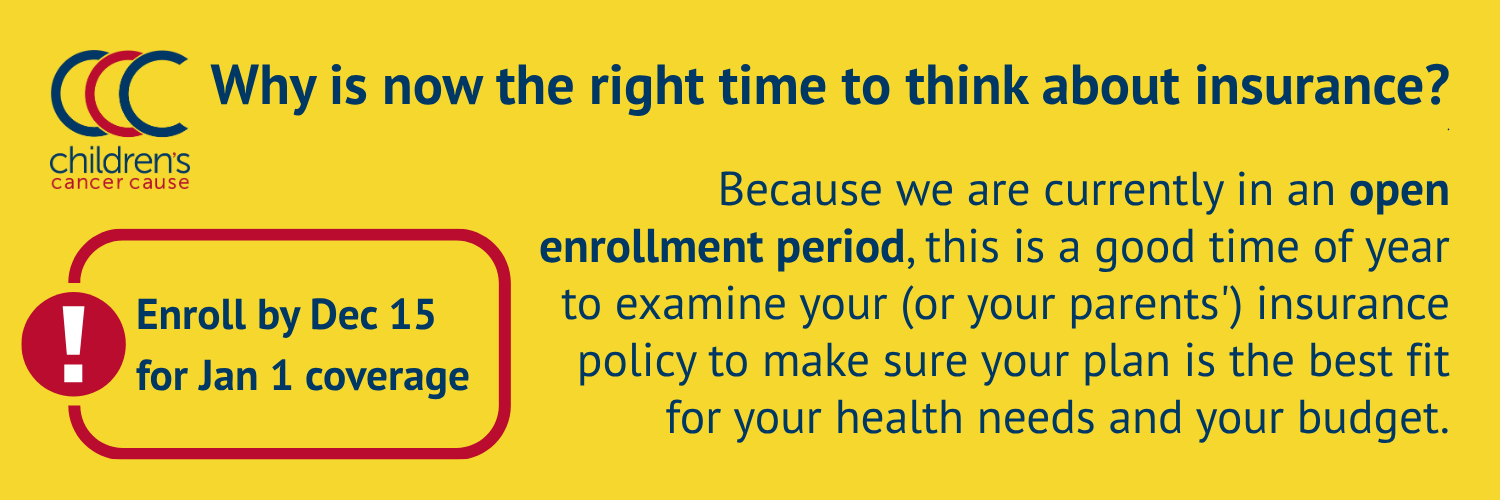When Healthcare Costs Climb: Navigating Insurance Options as a Survivor
If you've needed to borrow money from family or friends this year or you've had to dip into your savings to cover living expenses, you're not alone. Approximately 84 percent of young adult cancer survivors (18-39) report worsening financial impacts this year, according to Cancer Nation's just-released 2025 Survivorship Survey.
Specifically, 73% of surveyed survivors (of all ages) report concerns about the rising costs of health insurance. In our own 2025 survey of survivors, we also heard about widespread insurance challenges, particularly as young adult survivors age out of parental coverage or navigate job transitions. Survivors mentioned high out-of-pocket expenses including monthly medication costs of several hundred dollars and large deductibles for emergency room visits.
If you're following the news, you know that healthcare costs are rising significantly and putting tremendous pressure on patients and families. While we hope you'll join us in advocating for more affordable and accessible options, we also want to help ensure that you're as informed as possible about your insurance options as they stand right now.
Interested in a Marketplace plan?
Right now you can shop for healthcare through the federal Marketplace at HealthCare.gov. This means that if you're uninsured or looking for new coverage, you need to take action by December 15th in order to qualify for coverage starting on January 1st.
If you need help selecting a plan for 2026, HealthCare.gov can connect you with a Marketplace-certified agent or assister. Agents are generally paid by the insurance companies whose plans they represent, while assisters are Marketplace-trained and required to provide fair, impartial, and accurate information. Contact an assister in your area.
Already enrolled in a Marketplace plan?
The good news is that you'll be automatically re-enrolled in that plan, so you won't face gaps in coverage. But in order to make sure you get the savings you qualify for, HealthCare.gov asks you to log in to your Marketplace account before December 15th and update your application. This is where you can also review available plans and make a change if you need to.
Some companies may no longer be offering the plan you're currently on, in which case the Marketplace will automatically enroll you in a plan that's similar to your current plan -- but you might disagree that it's the best one for you. This is why it's so important to log in and take a look at your options.
If increasing costs are affecting you and your annual household income is below 200 percent of the federal poverty level, the HealthWell Foundation has launched a new fund to provide premium assistance of up to $2,000 to individuals who have obtained health care coverage through the Marketplace. Find out if you're eligible and apply here.
Are you under 26?
You are likely eligible to remain on your parent’s healthcare plan through age 26, even if you’re married, in college, or have a child of your own. As you approach your 26th birthday, you’ll need to have a plan in place for healthcare coverage of your own. HealthCare.gov offers a helpful page for young adults about to age out of their parent’s coverage.
Are you a college student?
If you’re in college or starting in the spring semester, you may be able to enroll in a student health plan through your school. This is intended to be an easy and affordable option for students, but it’s not your only option.
Students are eligible to apply through the Marketplace if they’d prefer. Please note that if you’re shopping for a plan with the intention of switching from a student plan to a Marketplace plan, HealthCare.gov advises that you select “No” when the site asks if you have health coverage.
Depending your circumstances, you may also be eligible for Medicaid or Medicare. You can learn more about these and other options, as well as insurance protections granted to you by the Affordable Care Act, on our Stewart Initiative health insurance resource page.
If you're still unsure which option is right for you, reach out to a social worker, patient navigator, or your nearest survivorship clinic to help you identify local/regional assistance programs. Using educational tools or working with a navigator/social worker can help you understand your plan, your rights, and how to use your coverage effectively.



